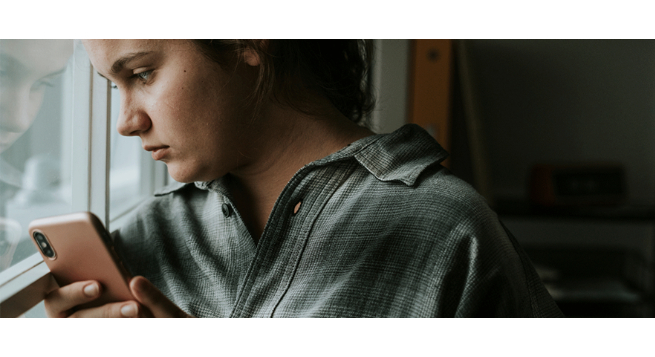A study undertaken by the UK’s media and telecoms regulator Ofcom shows that four in 10 children aged 8-17 (39 percent) have experienced bullying, either on or offline.
Among these children, the bullying was more likely to happen on a device (84 percent) than face-to-face (61%).
The most common way for children to be bullied via technology was through text or messaging apps (56%), followed by social media (43%) or online games (30%).
Two thirds of parents worry in general about their child being targeted by online bullies. Among parents of children who game online, over half were concerned about being bullied during gameplay (52%), Ofcom said, citing data from the study.
Most children (93%) say that they would tell someone if they saw something upsetting or nasty online. Girls are significantly more likely than boys to always tell someone about something worrying that they had seen (62% vs 56%).
Ofcom holds regular podcasts to carry home the message of the report and make parents and kids more about the issues.
The British regulator said its research showed that nearly all UK households with school-age children had internet access in the home, and that use of the internet was an integral part of children’s day-to-day lives, with increasingly little distinction between the worlds of ‘offline’ and ‘online’.
However, there remains a small but important minority of children who have limited access to adequate devices in the home for educational needs. Although the impact of limited online access and devices on schooling has lessened as home-learning has decreased, the extent to which children are going online to supplement their schoolwork and other learning activities shows the degree to which those without full and easy access to the internet may be missing out developmentally, socially and educationally.
Children were more likely to watch online video content on video-sharing platforms apps and sites than they were to watch paid-for on-demand services or to watch broadcast television. In fact, the proportion of school-age children watching video content online was twice that of watching broadcast television.
Critical understanding skills play an important role in enabling children to consume and interact with online and offline media safely.
“Our research shows that children are broadly confident in their ability to tell what is real and fake online, and to identify advertising online. However, this confidence was not always matched by ability when we tested these skills in scenario questions. Children were most likely to be both confident and able in identifying a fake social media profile, but least likely to be confident and able in relation to misinformation,” Ofcom said.
Set against the positive aspects of online life, there are risks and potential harms online: over a third of children had seen something online that worried or upset them, and a large proportion had experienced being bullied, either online through social media or gaming, or on messaging or video messaging apps.
 Prime Video to limit in India number of TV sets having access per subscription
Prime Video to limit in India number of TV sets having access per subscription  Delhi HC orders meta to remove deepfake videos of Rajat Sharma
Delhi HC orders meta to remove deepfake videos of Rajat Sharma  Govt. blocked 18 OTT platforms for obscene content in 2024
Govt. blocked 18 OTT platforms for obscene content in 2024  Broadcasting industry resists inclusion under Telecom Act
Broadcasting industry resists inclusion under Telecom Act  DTH viewing going down & a hybrid ecosystem evolving: Dish TV CEO
DTH viewing going down & a hybrid ecosystem evolving: Dish TV CEO  Abhishek Singh Rajput shines in ‘Swipe Crime’ on MX Player
Abhishek Singh Rajput shines in ‘Swipe Crime’ on MX Player  Farhan Akhtar’s ‘120 Bahadur’ to hit theatres on November 21, 2025
Farhan Akhtar’s ‘120 Bahadur’ to hit theatres on November 21, 2025  COLORS announces 2025 lineup
COLORS announces 2025 lineup  Sony YAY! announces holiday wishes from Toon-Town this Christmas
Sony YAY! announces holiday wishes from Toon-Town this Christmas  8Bit Creatives partners with ESFI to elevate WAVES esports championship 2025
8Bit Creatives partners with ESFI to elevate WAVES esports championship 2025 








